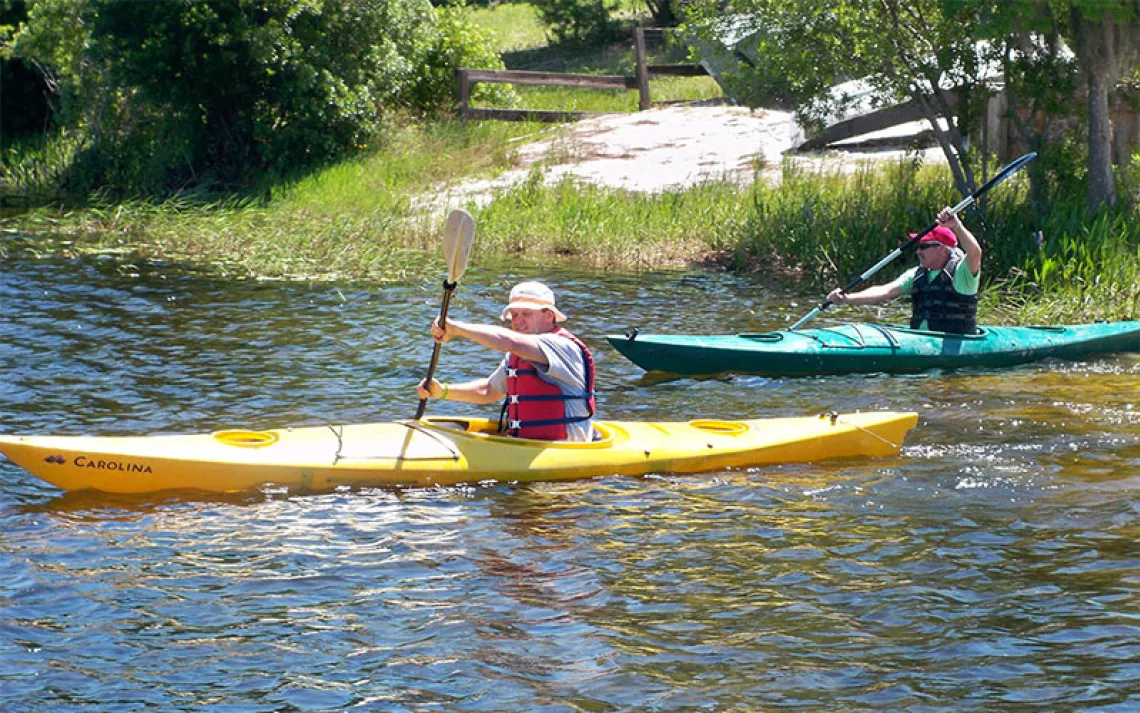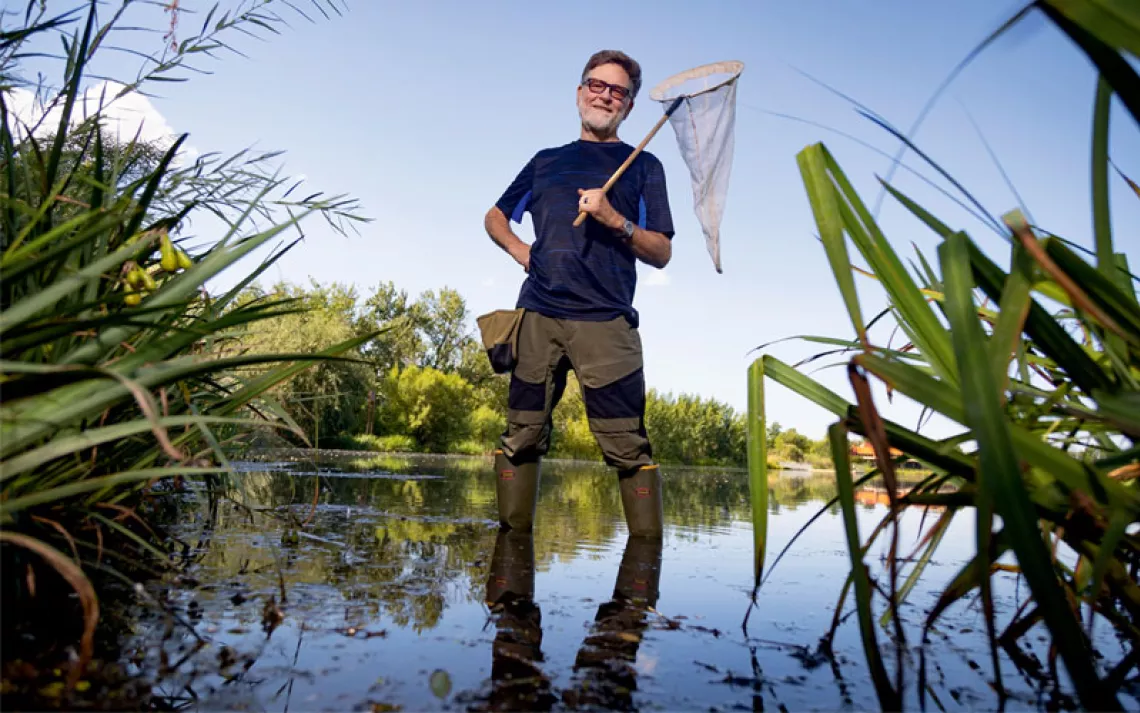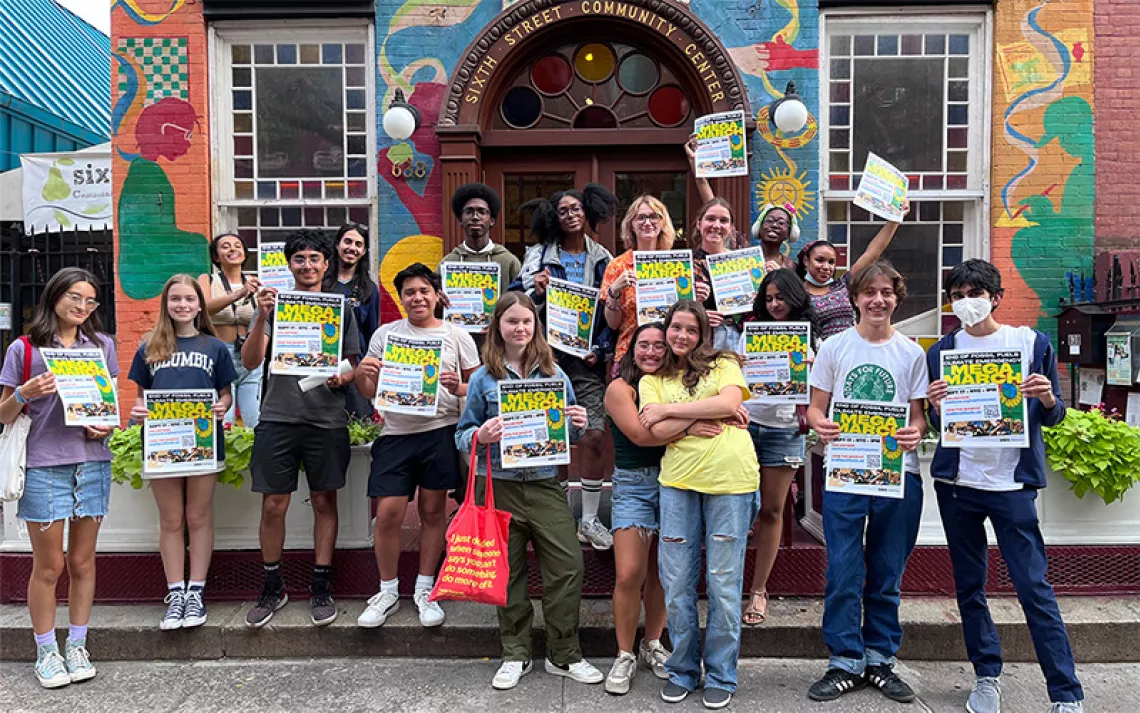How to Be an Environmental Lawyer
First, don’t bother with pre-law
When I was a kid, I loved reading books about jobs. Anything with a title like A Day in the Life of a Railroad Engineer or A Day in the Life of a Bar Pilot was exactly my speed. Since then, I’ve learned that going to school for something and actually doing that thing for a living are two very different things. You can get a degree in almost anything, but the best way to learn about a job is still to a) do it or b) talk to people who already do it.
This is the first in a series of interviews about what jobs actually are like, as opposed to what people think they are like. For the environmental law edition, I interviewed Claudia Polsky, who I first met while working on a story about women and politics nearly 10 years ago.
Polsky has litigated environmental cases in state and federal court, and the U.S. Supreme Court. She’s testified before Congress. She’s worked behind the scenes to make sure that environmental regulations get made and that they endure. As the founding director of UC Berkeley’s Environmental Law Clinic, she teaches the next generation of environmental lawyers the nuts and bolts of actual law practice. In short: she’s had more careers than any lawyer I know. She was kind enough to sit down with me recently and answer a few questions:
 Okay, first things first: What can you do with an environmental law degree?
Okay, first things first: What can you do with an environmental law degree?
You can advise businesses on how to comply with environmental laws. You can write reports and articles that explain the laws we have. You can represent individuals and community groups suing those who break environmental laws. You can run for office and draft better environmental laws. You don’t have to be a lawyer to run for office but there’s a reason most elected officials have law degrees.
The most important thing you can do as a lawyer is: You can right very big power imbalances. Law is a tremendous power equalizer. Every day, Davids beat Goliaths in court—even though they don’t in the economic marketplace, and they don’t in a gerrymandered and corrupted political space.
Why do you think that is?
I think the rules of engagement are fundamentally fairer. There are very few spaces where a disempowered individual and rich, privileged party can get equal time. You pay a pretty small court filing fee. You get as many pages as the giant corporation on the other side. The judge spends as much time reading your pages as the other side's pages.
Okay, well, what are some things that going to school for environmental law isn’t good for?
The key is really to make sure you don’t let law school and legal practice dim your willingness to embrace risk, get your hands dirty, get out and interact with real people who are facing environmental problems, and visit real places that are under threat.
If there’s a problem with law school, it’s that it produces a bias towards risk aversion and book learning and abstraction, and a tendency to get paralyzed through analysis. There’s a certain fearless jumping in that I see in the best environmental lawyers.
Is there anything you wish that you’d known before you went into environmental law?
I wish that I had understood how different legal environmental practice opportunities really are from each other. There’s an adage: How we spend our days is how we spend our lives. There are jobs that have you mostly in the courtroom—that would primarily be criminal environmental prosecutions. And then there are jobs that have you mostly behind a computer, writing briefs on a really extended schedule. If you’re the kind of person who really likes to interact with individuals and you imagine yourself as kind of an Erin Brockovich type, interviewing people about their exposure to chromium 6—well, then maybe you want to be a plaintiff’s tort lawyer. Because that’s not the kind of personal, emotional encounter that you are going to find in appellate environmental law practice in the federal courts.
A related thing that I didn’t understand—and that most environmental law students don’t understand—is that you’re often dealing with statistical lives. You’re dealing with problems that are really compelling—air pollution, water pollution, climate change—but you’re working with them at a level of abstraction where you have to be able to feel good going to bed at night that you’ve made life better for tens of thousands of people who you will never meet.
Also, whether you are by disposition a specialist or a generalist is a good thing to figure out about yourself, so you can find an institution that’s a good match. In some jobs what you do is very specific: You’re a land use lawyer, or you’re an environmental toxics lawyer. In other settings not only is your environmental practice broad, but you may find it supplemented by other things. If you work at a county counsel's office, for instance, it’s common to have environmental and consumer protection combined, because oftentimes, companies that have bad environmental practices are also defrauding their customers.
What about real life versus law school? What did you get trained in, and what was actually useful?
Law schools—especially the most competitive law schools—assume that people will be coming from all over and will disperse geographically to all over after they graduate. They’re operating in a national marketplace, so they really focus on federal law. You learn about the Clean Water Act, and the Clean Air Act, the Endangered Species Act, and all the other blockbuster federal statutes. You focus heavily on the cases that the U.S. Supreme Court has decided.
But most of environmental law practice is state and local. The laws you are going to be enforcing, or advising clients to comply with, are state and local. There will be federal ones that are relevant. But there’s so much more below the federal level.
That’s something that should actually give people optimism. The U.S. Supreme Court has been so conservative for so long that it’s not a place generally where you can make any environmental progress. It can make you feel like progress isn’t possible through the courts, when in fact in state courts you can make a lot of progress.
You can also make a lot of progress through the lower levels of the federal court system, because the Supreme Court doesn’t hear many cases. That’s something that is often obscured in law school.
Another misperception is that the bulk of lawyering is litigation. It isn’t. It’s advising clients. It’s advising agencies. It’s drafting statutes and regulations. It’s transactional lawyering that might get a green business established.
Law schools are becoming much better at training people in all of these things. But when I was going to law school 20 years ago, you mostly read cases and talked about lawyering as conflict, rather than lawyering as problem-solving. The idea that you would have a specialized course in how to train people to draft documents to help site and finance a wind farm is something that wouldn’t have been thinkable then, even though environmentalists have been promoting wind energy since the first Earth Day.
You mentioned politics. Are there other fields that people with law training tend to migrate off to?
Dual degrees are becoming more and more common in law. I think in part it’s because of the credential inflation in this country, generally: you need more degrees to get the same job. But it’s more common to see people have law and business degrees, and to end up in green technology or finance. It’s also common to see dual law and planning degrees. Those are people who are interested in local land use, but will probably work as lawyers rather than planners.
In terms of jobs when you get out of school, who is doing most of the hiring?
The environmental law practices at large firms have a huge range of jobs that are described as environmental law, even though they aren’t all green jobs. You could, for example, be defending GE dumping PCBs in the Housatonic.
Then there are the public agency jobs: The people who are in-house counsel or external litigation counsel for the DOJ [Department of Justice] representing every single state and federal environmental agency. That’s an enormous number of lawyers.
Both of those would far outnumber the people employed by environmental nonprofits. Those don’t compare to agencies and agencies full of environmental lawyers.
There are a small number of attorneys who are environmental specialists who work in-house in companies. I would say the most interesting area that has emerged is kind of a sustainability lawyer role within some mid-size and big companies.
What does that person do?
Well, let's say that person works for a big-box retailer. They would be looking at supply chain issues, like “Can we source versions of the consumer products we sell that don’t have carcinogenic flame retardants, or endocrine-disrupting plasticizers?” Typically that person would be doing some combination of making sure that everything the company is doing is complying with existing regulations, and nudging the company whenever it is economically feasible to do something that is greener than required—because the people who seek to be sustainability counsel tend to be greener than the companies where they are employed. To me, this is a very exciting frontier, with a lot of room for creative lawyering.
When you worked for the state of California, what kind of work did you do there?
When I was at the state DOJ I had a bunch of different roles. Many involved regulatory advising of state agencies that were trying to do environmentally progressive things. Sometimes it was helping to draft regulations. Sometimes it was helping them strategize about how industries would attack the regulations they were trying to adopt and working to make regulations less vulnerable.
That was actually a job I loved. I did a lot of work on California’s green chemistry regulations. The lead state agency had in-house counsel and I thought of myself as “outhouse counsel.” I would say to them, “You’re trying to build a building. You are trying to build a beautiful piece of architecture. This is your vision of the safer consumer product regulations we should have in California. I am trying to build a bomb shelter. Every bit of mortar you put up will have a grenade launched at it, so let’s figure out how to get to your goal in the way that is the most impervious to damage.”
Usually the way things work is that if there is a regulation that affects a wide swath of industry, usually the most affected players will litigate, accompanied by their trade associations. And by being very tactical, we were able to do a number of broad, impactful regulatory things without the agency even getting sued, never mind losing.
How is teaching different from all of this?
There’s a piece in the Environmental Law Clinic where we're litigating or drafting potential regulations that is very much like I’m doing what I did before, except that I'm working through students. So I’ll scope out a project but the students do most of the work. I’m not driving; I’m more of the backseat kibbitzer. At the end there might be a gap between what the students can do and what the case demands, because they're brand new to this work. Or the students might not have enough time to take our product across the finish line.That's where Clinic staff and I backfill, to make sure the client gets professional-level representation. But fundamentally it’s about trying to have the students learn as much they can about practice, while achieving the best result for the client and the environment. I still desperately want to win. But you have to let the students do as much as possible.
I love to teach students about all the different ways that you can effect change as a lawyer. Suing somebody is usually the last resort, but it’s the first thing people tend to think of when they’ve gone to all the trouble and expense of getting a law degree.
Do you have any other advice to aspiring law students that I forgot to ask you about?
Law school is really sufficient unto itself to teach you the nuts and bolts of law. So I think it’s a tremendous waste to do something one would call pre-law. It’s fine to take a couple of classes, or have a legal studies minor, so you can make sure the field interests you. But people should really do something else as their undergraduate major. People can get fearful and think that getting a pre-law degree will give them an edge, but if anything, I think law school admissions offices look on it less favorably because it can present a view of the student as hyper-vocationally oriented, or not so imaginative.
Having said that, I will say that doing things like having a summer job in a law practice, or being a paralegal before law school, can be really valuable for showing you what actual law practice is like. It took me the whole first year of law school before I could fully understand the difference between civil and criminal litigation. That’s not ideal. It is good to have some familiarity with the craft. But it’s not something you should waste your bachelor’s degree on.
Instead, immerse yourself in the social sciences and humanities, read beautifully written things to learn to emulate them, learn to think conceptually and abstractly. Or, major in a STEM field and become analytically excellent and quantitatively unafraid. Or, do both: an undergraduate who is auditing my class, with an eye towards becoming an environmental lawyer, is a double major in Environmental Economics and Rhetoric. That’s just perfect. Why be “pre-” something for four years when you the legal field gives you the freedom to just “be” something?
 The Magazine of The Sierra Club
The Magazine of The Sierra Club




